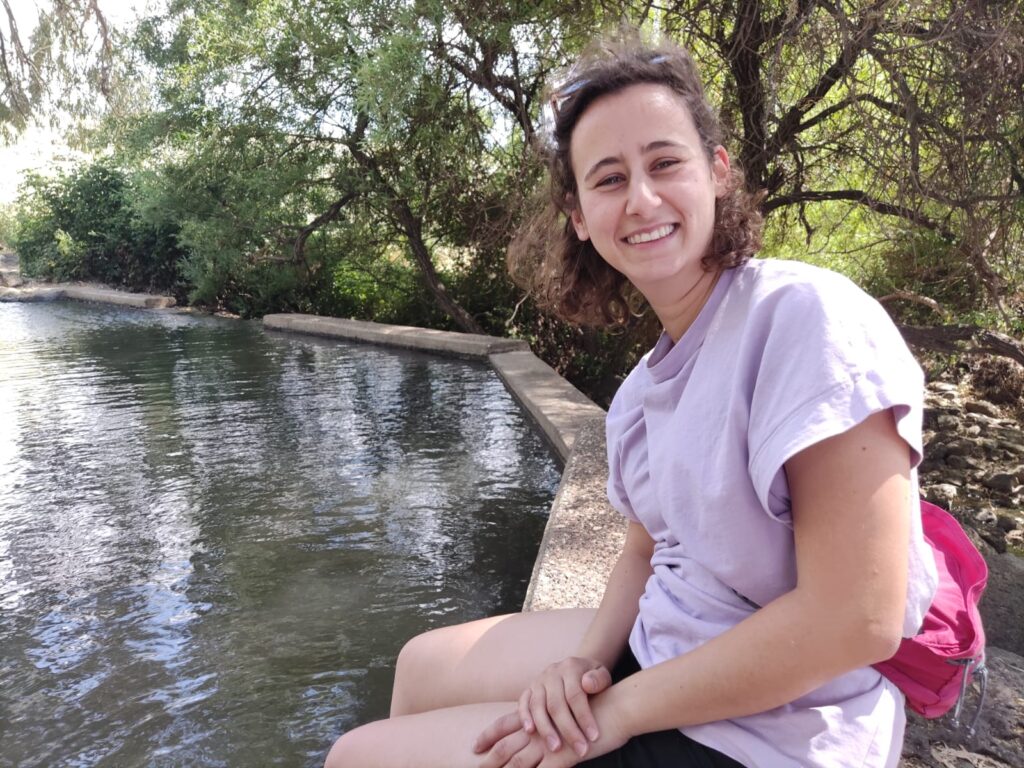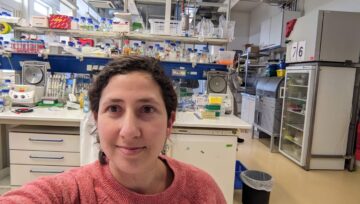SPOTLIGHT ON RESEARCH
PAPER OF THE MONTH Jun 2023
The Committee for Graduate Studies in the Faculty of Biology selects the leading scientific article each month from all the scientific articles published for that month.
We are pleased to announce that the winner of Jun’s article is Iris Wyrobnik from Assistant Prof. Meiri’s lab. The article was published in OncoImmunology.
On the occasion of the win, we asked Iris to provide us with some interesting details about the study, the path that led to the research, and a bit about her.
Hi, could you introduce yourself in a few words?
I was born and raised in Frankfurt/Main, Germany, and came to Israel after High school. I completed my Biology undergraduate studies at Bar-Ilan University and came to the Technion to join Dedi´s Lab for my master degree in collaboration with Dr. Ishai Ofran at the Rambam Hospital. In continued my PhD studies in Dedi´s lab and now finished my studies.
Could you explain what Assistant Prof. Stern’s Laboratory is all about?
At Dedi´s lab we investigate the potential of medical cannabis and other natural occurring compounds on the modification of various diseases, ranging from cancer and autoimmune disorders.
Could you tell us about your current article/research what was the main purpose of the research and what did you discover?
During solid tumor progression, immunosuppressive cells are actively recruited by cancer cells via the secretion of cytokines to allow continues progression and metastasis formation.
In our article we explore the ability of cannabis and cannabinoids to modulate the immunosuppressive compartment of the tumor microenvironment in order to reduce tumor progression. We identified the reduced secretion of an important cytokine, called CSF-1, when the cancer cells where treated with the cannabinoid CBG. This led to a reduced immunosuppressive tumor microenvironment and thereby to decreased tumor progression. We also found that the combination of CBG with a commonly used immunotherapeutic agent was most effective in reducing tumor progression than each treatment alone.
Can you elaborate on the importance of the discovery? How will it serve you and what directions does it take? What is the application of the discovery (domains, solutions)?
In this work we show for the first time the ability of CBG to modulate the immunosuppressive compartment of the tumor microenvironment. As of today, immunosuppressive cells are gaining more attention in anticancer drug development, since they are important players in tumor progression and are one of the main reasons for acquiring resistance to immunotherapy. The results have high clinical implications, because today many oncology patients receive already medical cannabis together with immunotherapy without knowing how cannabis might affect the immunotherapy treatment. Therefore it is of high clinical relevance to investigate which cannabinoids can be used together with which immunotherapeutic agent in order to receive together a superior anti-cancer effect.
What drew you to the current lab/project?
I was fascinated by the idea that the cannabis plant has this huge undiscovered potential and I was eager to understand the effect of cannabis on the complexity of the tumor ecosystem.
When you are not “doing” science, what do you do?
In my freetime, I like to play tennis, chess and hike.
When you grow up who do you want to be?
I haven´t thought so much in advance 😀
what are your plans for the future of your career?
I would like to continue discovering interesting things with high clinical implications.
➡ Click here to read the full article
➡ Click here to view the Assistant Prof. Dedi Meiri’s lab site









